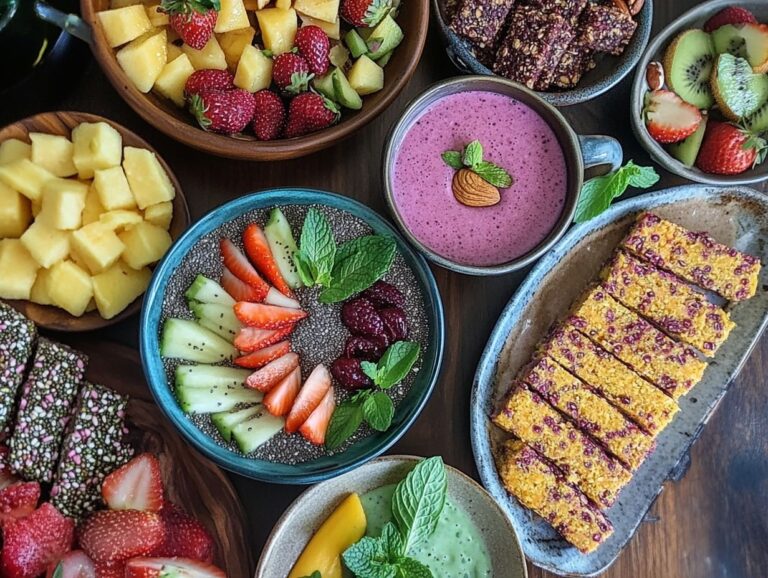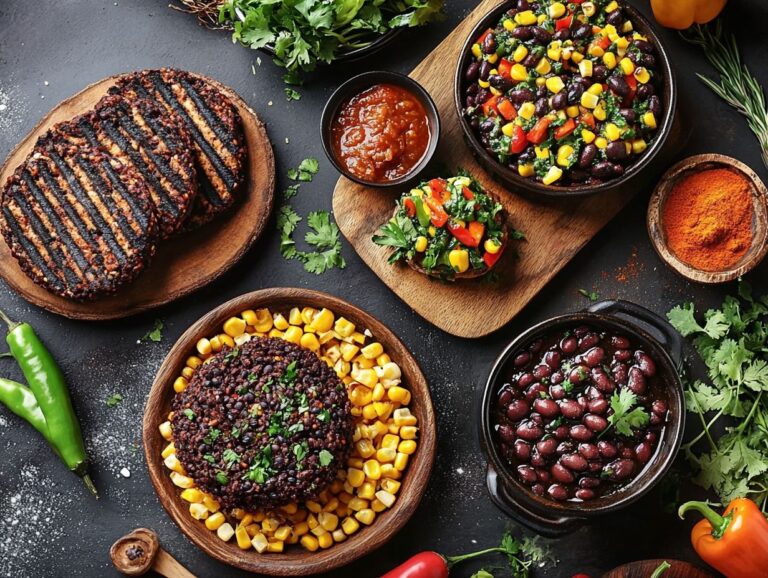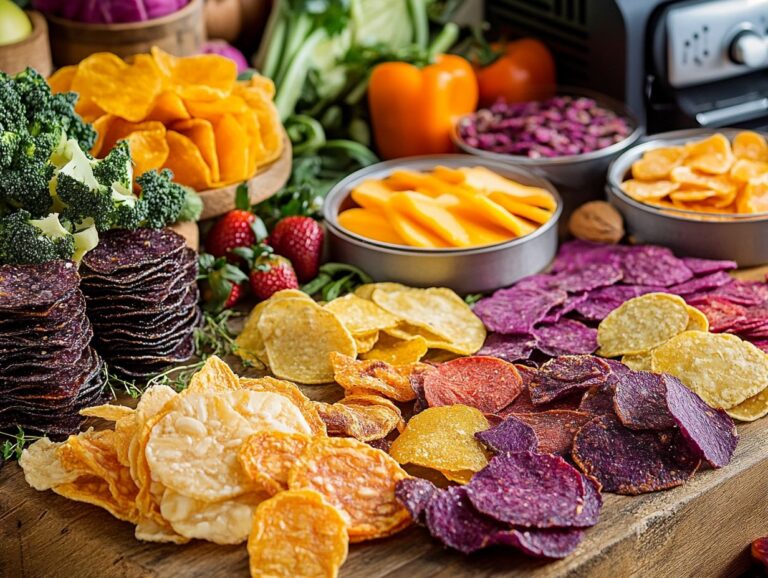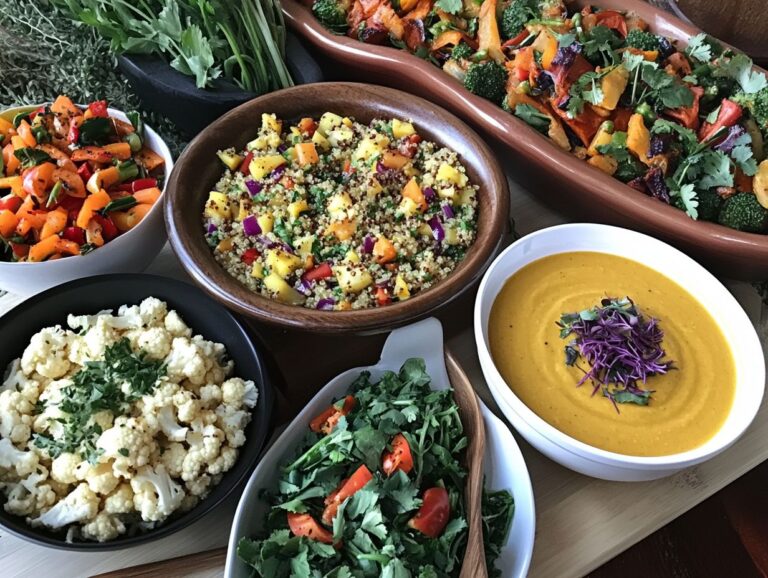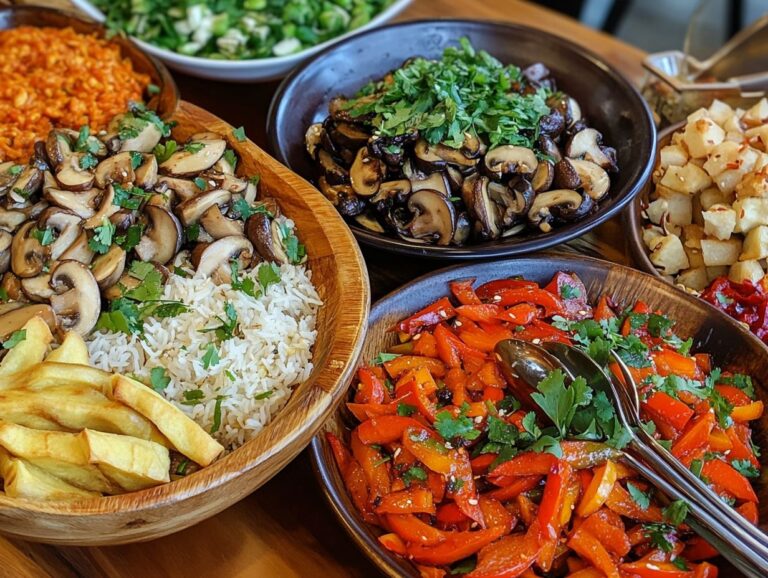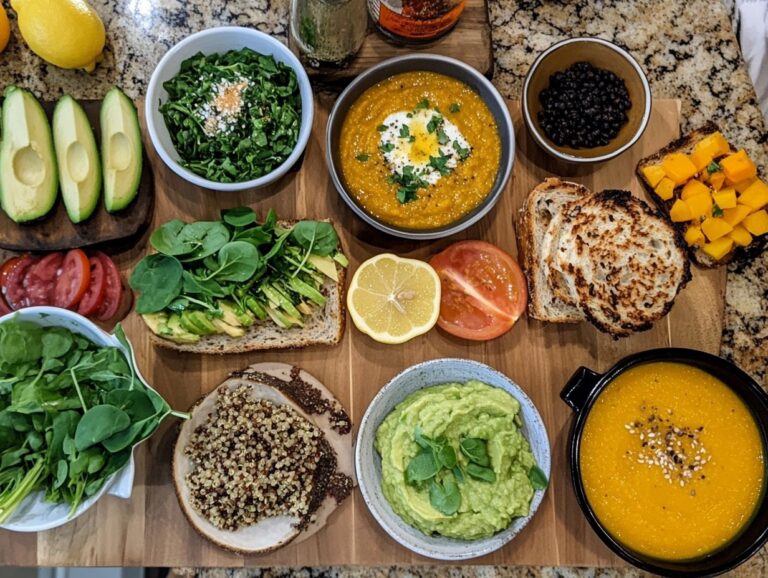Vegan bodybuilding is an increasingly popular approach that dispels the misconception that animal-based protein is necessary for building muscle. This discussion will explore the critical role of proper nutrition in muscle growth, highlighting the essential nutrients and macronutrient ratios for vegans. You will discover top plant-based protein sources, delicious recipes designed for muscle building, and effective meal planning strategies. Additionally, we will highlight essential supplements to enhance your gains. Join us as we reveal the secrets to thriving as a vegan athlete.
What is Vegan Bodybuilding?
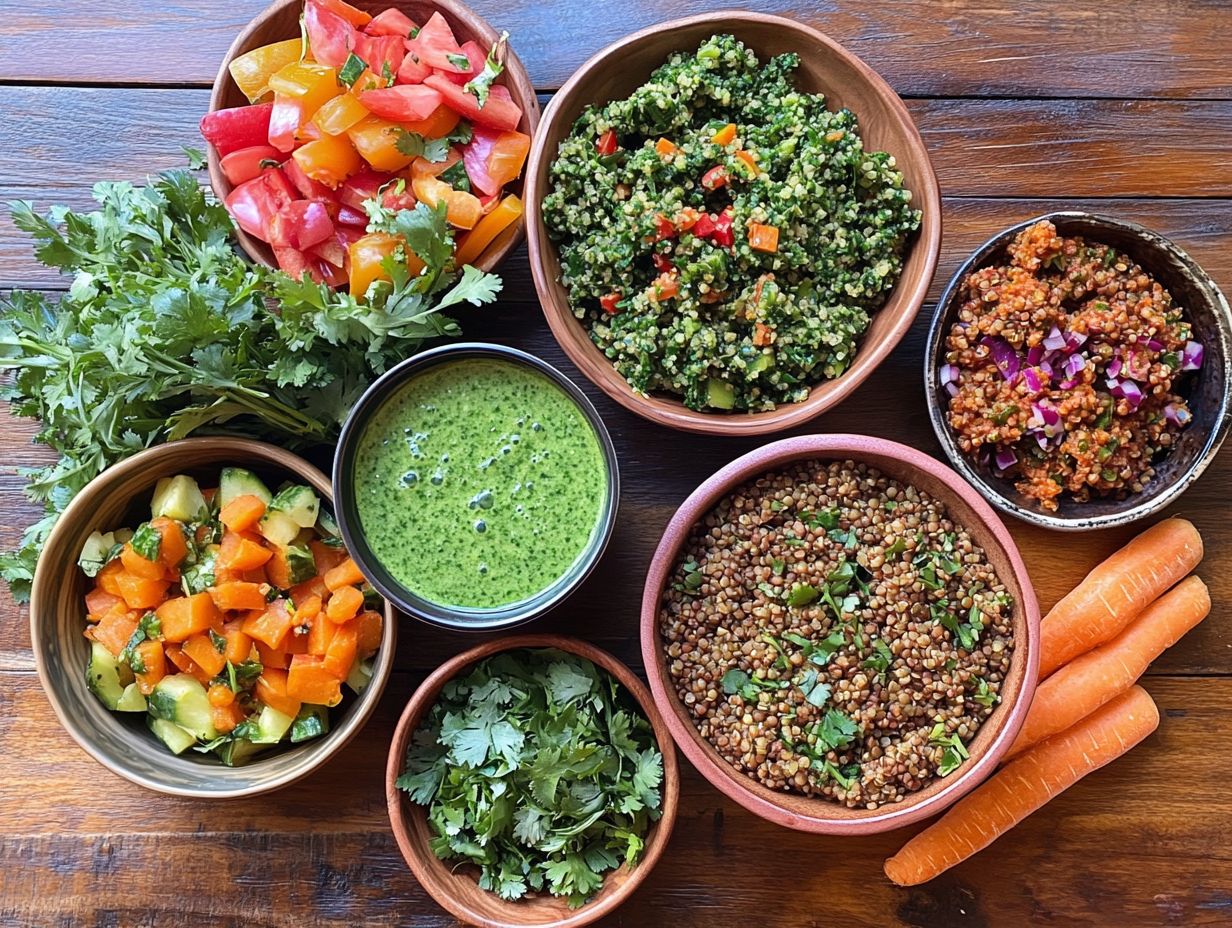
Vegan bodybuilding is a specialized fitness approach that emphasizes a plant-based diet alongside muscle gain and other fitness objectives. It debunks the myth that bodybuilders require animal-based protein sources by demonstrating how nutrient-dense options like legumes, tofu, lentils, chickpeas, and quinoa can effectively fuel workouts and aid in muscle repair.
This approach not only promotes muscle mass development akin to traditional bodybuilding but also incorporates clean eating principles, including dairy-free and gluten-free food choices. As a result, individuals can achieve their fitness goals without compromising their commitment to healthy living or ethical beliefs.
The growing popularity of plant-based diets among fitness enthusiasts has led to the discovery of robust alternatives such as lentils, chickpeas, and seitan. These foods are excellent sources of protein that support muscle synthesis and enhance overall health.
Rich in fiber, vitamins, minerals, and antioxidants, they also aid digestion and help prevent chronic diseases. Including hemp seeds, nuts, and edamame in the diet ensures a complete amino acid profile, which is essential for muscle repair and growth. Furthermore, incorporating a variety of fruits and vegetables provides essential nutrients and can accelerate recovery by reducing inflammation.
This demonstrates that it is entirely possible to achieve fitness goals without relying on animal products.
Importance of Proper Nutrition for Muscle Growth
Proper nutrition is essential for muscle growth in any bodybuilding program, and it is even more crucial for a vegan bodybuilding regimen. The right combination of nutrients can significantly enhance performance and aid in recovery.
A well-balanced diet that includes sufficient amounts of plant-based protein sources and healthy fats helps maintain energy levels during workouts, supports muscle repair, and ensures that macronutrient requirements are met.
By understanding the importance of meal timing and incorporating nutrient-dense foods, vegan bodybuilders can successfully achieve their fitness goals.
Nutrients and Macronutrient Ratios for Vegans
Understanding nutrient requirements and macronutrient ratios is crucial for vegans aiming to enhance muscle gain and overall performance in bodybuilding. A balanced vegan diet should strive to achieve the ideal ratios of carbohydrates, proteins, and fats while ensuring an adequate intake of essential amino acids, vitamins, and minerals.
Nutrient-dense foods such as beans, lentils, and whole grains improve nutrient absorption and help meet the specific needs of vegan bodybuilders in achieving their fitness goals. The ideal macronutrient ratio for vegan bodybuilders typically consists of 50-60% carbohydrates, 25-30% protein, and 15-25% fats to promote optimal muscle growth.
Carbohydrates from sources like quinoa, sweet potatoes, and oats provide the energy necessary for intense workouts. Protein sources such as tempeh, chickpeas, black beans, and hemp seeds are vital for muscle repair and growth. Healthy fats from avocados, walnuts, and flaxseeds help maintain hormone levels and promote overall well-being.
This careful balance not only fuels workouts but also aids in recovery and supports overall fitness goals.
Top Vegan Protein Sources for Building Muscle
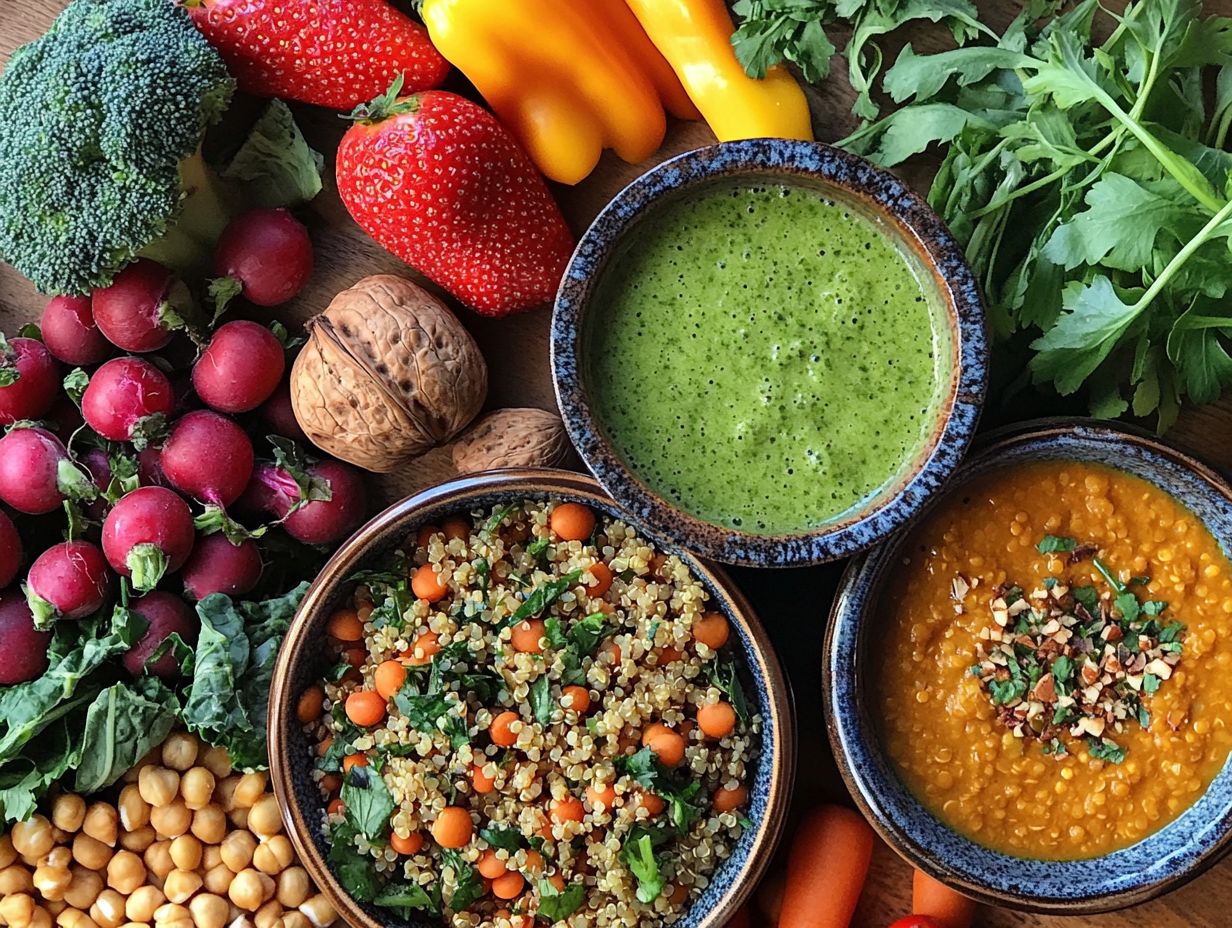
The best vegan protein sources for bodybuilders are essential for muscle building and overall health, as plant proteins offer a rich variety of amino acids necessary for muscle recovery and growth.
By incorporating a range of vegan bodybuilding meals, such as legumes, tofu, tempeh, quinoa dishes, and even vegan desserts, individuals can ensure their nutrition is balanced while enjoying a diverse selection of healthy vegan foods.
This variety not only aids in meeting protein requirements but also allows individuals to prepare meals in creative and enjoyable ways.
Plant-based Protein Options and Their Benefits
There are numerous plant-based protein options that offer a variety of health benefits, making them ideal for a vegan bodybuilding diet.
Foods such as chickpeas, lentils, nuts, and seeds not only provide protein but also contain healthy fats and essential vitamins and minerals that aid in muscle recovery and overall health.
By incorporating a variety of these nutrient-dense foods, bodybuilders can ensure they receive the appropriate amino acid profile while enjoying an assortment of tastes and textures.
Quinoa and edamame are additional options that can enhance a protein-rich diet, as they provide complete proteins containing all nine essential amino acids.
Tofu and tempeh, both soy products, serve as excellent meat substitutes, delivering high protein levels while being versatile enough to fit into various recipes, including tempeh stir-fry and protein-packed power bowls.
Furthermore, hemp and chia seeds contribute extra protein along with omega-3 fatty acids, which work together to reduce inflammation, improve recovery, and provide energy-boosting benefits.
Vegan Bodybuilding Recipes
The Importance of Recipes for Vegan Bodybuilders
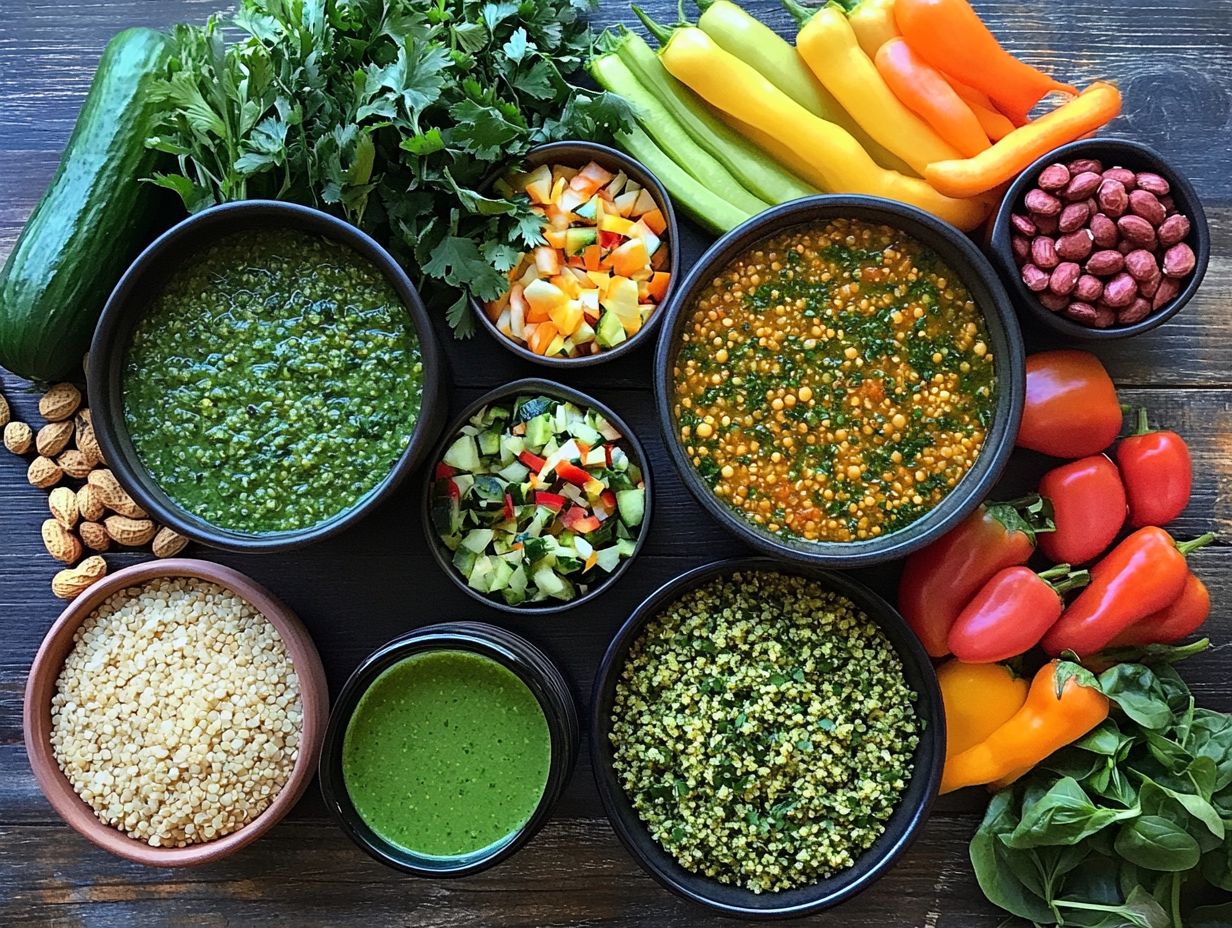
Creating healthy and delicious recipes is essential for anyone following a vegan bodybuilding diet, as it enables individuals to enjoy nutritious meals that effectively fuel their workouts and enhance their gains.
The best vegan bodybuilding recipes for meals and snacks are packed with healthy ingredients and rich in protein. Examples of high-protein vegan recipes include plant-based protein smoothies, protein-rich vegan snacks, and various high-protein meal ideas.
Ingredients such as quinoa, broccoli, soybeans, lentils, chickpeas, nuts, and tofu can be incorporated into daily meal prep in numerous ways. Utilizing different cooking methods, flavor combinations, and recipes is crucial for vegan bodybuilders to ensure they meet their nutritional needs while savoring a diverse range of flavors and textures.
High Protein Meal Ideas for Muscle Building
High-protein meal ideas are essential for muscle building and recovery for individuals following a vegan diet, as they provide the necessary nutrients and energy required for recovery. Examples of high-protein meals include vegan chili, tofu stir-fry, and quinoa salads, which contain a variety of energy-dense foods that help keep you full and energized throughout the day. By developing a meal plan that incorporates high-protein meal ideas, you can ensure that you meet your protein requirements.
Foods such as lentils, chickpeas, and tempeh are easy to prepare and can be seamlessly integrated into your daily diet. For instance, lentil soup is not only one of the simplest vegan dishes to prepare but also a healthy option, as lentils are a great source of protein, fiber, and B vitamins that aid in recovery and boost energy.
Another excellent high-protein meal idea is a chickpea salad, which provides essential amino acids. Salads like this, packed with a variety of raw vegetables, are beneficial for digestion and can easily fit into a high-protein dinner plan.
Additionally, nuts and seeds are good sources of protein; they are often used as toppings for salads, soups, and stir-fries, or enjoyed as snacks between meals.
Pre- and Post-Workout Snack Ideas
Snacking before and after workouts is essential for performance and recovery, particularly in vegan bodybuilding, due to the significance of meal timing and nutrition. These snacks help elevate energy levels and support the building and repairing of muscle tissue.
Options such as hummus with carrot sticks or a smoothie made with spinach, bananas, and almond milk provide important vitamins and minerals while maintaining a high protein content. Additionally, the inclusion of complex carbohydrates is vital for sustained energy, which is critical during high-intensity training sessions.
Choices like chia seed pudding or quinoa salad can help replenish glycogen stores and aid in muscle repair after workouts, highlighting the importance of meal timing and proper nutrition in a balanced fitness regimen.
Meal Planning for Vegan Bodybuilding
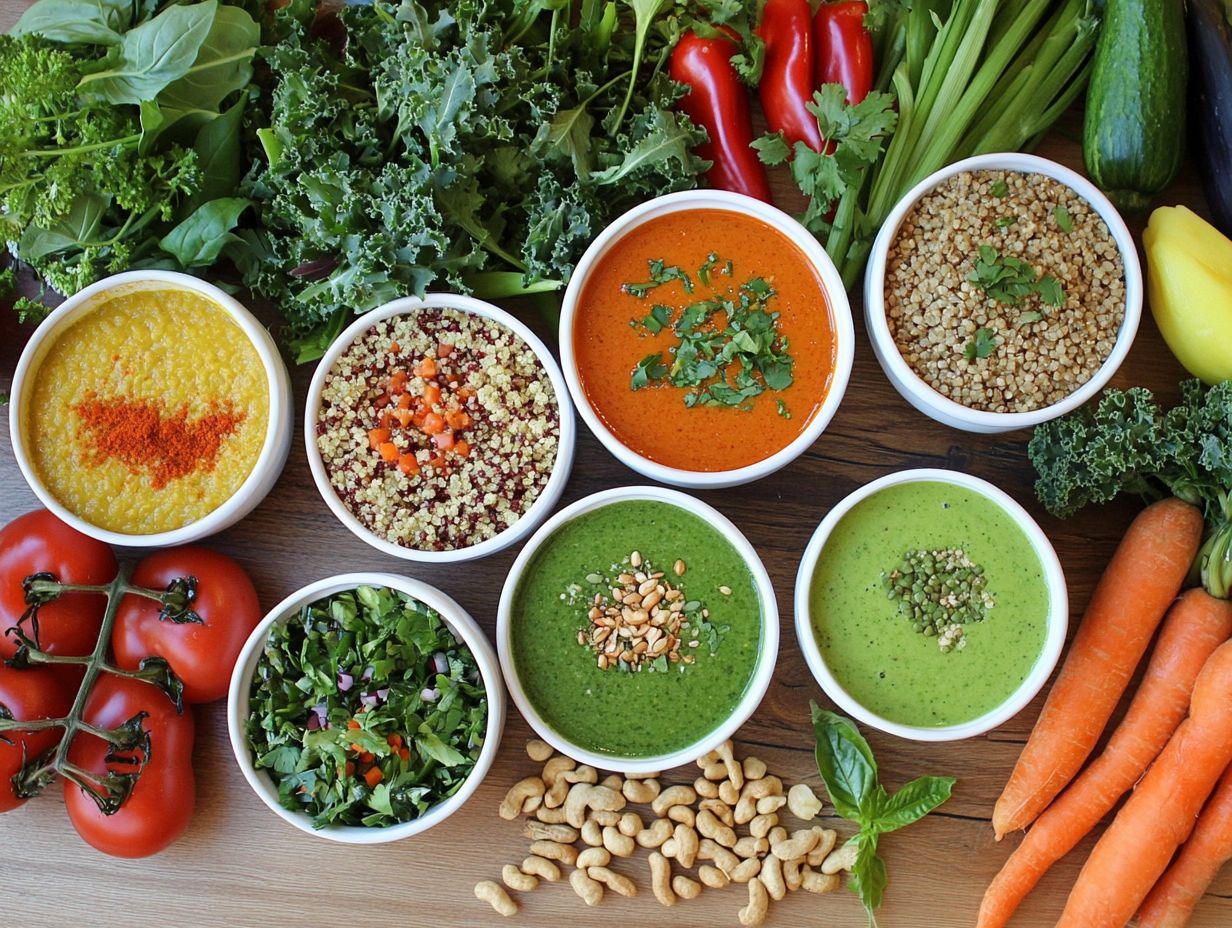
Meal planning is a crucial aspect of vegan bodybuilding, enabling individuals to monitor their nutrition while adhering to a plant-based diet for long-term muscle growth.
Effective vegan meal preparation simplifies the process of planning meals that provide the right balance of macronutrients, healthy fats, and a diverse array of nutrient-dense foods, ensuring that each meal supports fitness goals.
By incorporating food preparation tips, cooking techniques, and planning ahead, aspiring vegan bodybuilders can easily maintain healthy eating habits and ensure they meet their nutritional needs.
Tips for Meeting Nutritional Needs and Staying on Track
Meeting nutritional needs and adhering to a vegan bodybuilding plan requires a focus on healthy carbohydrates, proper hydration, and potentially beneficial dietary supplements to enhance performance.
For those committed to a vegan bodybuilding lifestyle, consuming healthy carbohydrates is essential, as these complex carbs provide sustained energy for high-intensity workouts. Incorporating a variety of legumes, nuts, seeds, and whole foods can support muscle recovery and growth, while staying hydrated daily with vegan hydration options helps maximize workout efficiency.
Drinking sufficient water throughout the day not only aids digestion but also facilitates nutrient transport within the body.
Alongside a balanced diet, supplements such as plant-based protein powders, tofu, and vitamin B12 can help prevent nutrient deficiencies, enabling individuals to achieve their bodybuilding and vegan goals effectively. Incorporating vegan recipes and nutrition plans can further support their fitness journey.
Fueling Your Gains: Vegan Supplements
Vegan supplements can significantly support bodybuilders by ensuring they obtain essential nutrients that may be challenging to acquire in sufficient quantities through whole foods alone. Including soy products like tempeh, lentils, and chickpeas in meals can complement these supplements.
Key supplements include:
- Plant-based protein powders
- Omega-3 supplements
- Vitamin B12
- Spirulina
- Iron and zinc supplements
- Branched-chain amino acids (BCAAs)
- Nutritional yeast
- Amino acids
These supplements collectively help meet dietary requirements and promote muscle recovery and growth. When combined with a well-balanced diet of whole, nutritious foods, including quinoa, edamame, nuts, and seeds, these supplements can enhance fitness nutrition and overall performance. Vegan snacks and energy bars can also be a part of a nutrient-dense diet.
Recommended Supplements for Vegan Bodybuilders
For vegan bodybuilders, certain supplements can help fill nutritional gaps and enhance performance, making them an essential consideration in any training program. Additionally, focusing on high protein and healthy fats from sources like black beans, tempeh stir-fry, and smoothies can contribute to better gains.
Recommended supplements include:
- Plant-based protein powders
- Branched-chain amino acids (BCAAs)
- Vitamin B12
- Carbohydrates and healthy eating plans
- Micronutrients and fiber supplements
These supplements support muscle growth, recovery, and energy levels. By strategically incorporating these supplements alongside a carefully planned diet that includes vegan protein powder and sustainable protein sources, individuals can maximize their fitness potential and meet their nutritional needs. Including vegan smoothies and energy-boosting foods in their meal prep can further enhance their workout results.
Omega-3 fatty acids, often derived from algae, are beneficial for reducing inflammation and improving joint health, which is crucial for intense training sessions. Including pre-workout meals and post-workout meals with healthy fats and antioxidants can further support these benefits.
Plant-sourced creatine is another important supplement known to enhance strength and power output during workouts. Additionally, iron and zinc supplements can be vital for those who may not obtain sufficient amounts of these minerals through their diet. Integrating diverse cooking methods and flavorful dishes like vegan chili, salads, patties, and bowls can help maintain a balanced intake of these nutrients.
Together, these supplements can support optimal athletic performance while adhering to a vegan lifestyle focused on muscle growth. Meal variety, easy recipes, and batch cooking can ensure consistent nutrition. Using seasonal ingredients, vegan sauces, spices, and culinary herbs can add flavor to vegan meals, making them enjoyable and sustainable.
